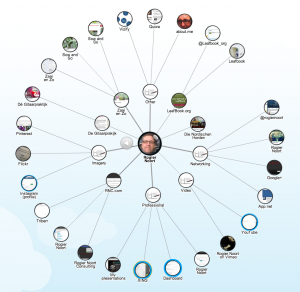 A friend of mine just started a new job, and me being me, I advised him to ask about their social media policies. In this day and age, we can assume there is bound to be one and it’s important not to make any mistakes with that.
A friend of mine just started a new job, and me being me, I advised him to ask about their social media policies. In this day and age, we can assume there is bound to be one and it’s important not to make any mistakes with that.
The reaction was a bit unexpected and a little bit worrisome.
Everything is blocked on your desktop, you can use your cellphone for social.
The person asked seemed annoyed by the question, he might be asked about social often, but the company has nothing in place regarding social.., nothing.
- No policy
- No directive
- No listening
- No engagement
- No presence
As you can imagine, I was stunned. Agreed, it might be a bit naive of me to think that most companies are doing something by now, but doing nothing at all…
Living in a Cave
I’m going to make another assumption. I assume most people do not live in caves any more, there might be one or two, but in Western Europe, that is highly unlikely. We can stretch this assumption all the way to Social Media.
You probably have a home, a telephone, an Internet connection and, statistically, you probably have a Facebook account too. Within any company in Western Europe there are, at least, some managers whom are active on Social Media. At the very least, some employees are.
And judging from main stream media and even the reported news.., you just have to be aware of this phenomenon called Social Media.
I believe this is a fair assumption.
Any Company
It is my believe, and with me almost every professional who has anything to do with social, that the use of social can benefit any and all companies.
Highly customised in some cases, well controlled or monitored in others, but a solution, or beneficial addition can always be found and made.
Just, No
Now we have established that most people in most companies are aware of The Social Evolution, you would assume they’d do something with it, or about it. Well, you’d be wrong. I was wrong.
That is one assumption you definitely can’t make. In fact, it’s save to assume that a lot of companies do not even entertain the thought of doing anything with social.
This company my friend works for as but one policy: No. Just.., no…
Every social site is blocked on the desktop, there is no training, no policy, no awareness, no risk management. I’m sure they have some PR worst-case-scenerios, but I’m also sure this does not involve social. Maybe it gets mentioned somewhere, but without a proper presence and proper training, there is no way you can predict or handle any problems or fall-out, should it occur.
However, you are allowed to use social through your own device (not sure if they have Wi-Fi, but you can bet they don’t).
No Stopping It
There is no way a company can forbid the use of social media. Especially in your own time.
They also cannot stop you from expressing your opinion about anything on any platform, they can only react.
And, they also cannot stop people outside the company, like customers, express their opinion.
Not For All
Now, it must be said, this company is an life-insurance company. Having a solid Social Media presence is difficult in this line of business. It’s not the most dynamic subject, and it’s hard to translate it into anything visual (but it can be done).
Also, one of their prime concerns is customer privacy.
They fear that with the use of social (on a desktop), sensitive information can easily be shared (or leaked). Also, because it is, in part, a financial institution it has to adhere to many rules.
Because of these two factors, its reputation is its most valuable asset. And yes, you can lose that in an instant via social.
However, this may happen regardless of whether or not you have an active Social Media Policy.
And therein lies the dilemma.
Risk Management
I’m not saying they should have a Twitter account and a Facebook Page.
I’m not saying they have to open up all channels on the desktops.
What I’m saying is; At the very least, they have to have a solid policy on the use of Social. Not as a restrictive measurement, but as a clear guide.
Informing your employees on the pitfalls of social, and having a document to fall back on, is not just smart, it’s mandatory. Through this policy you can not only protect the company from harm, but also the individual.
Closing everything of, and saying ‘No’, is not a solid strategy. It doesn’t protect you, it doesn’t educate. It only moves the problem somewhere else, maybe even increasing the risk.
Companies have a responsibility towards their employees, much like parents towards their children.
Social Business
And then there’s that. If we (companies) do not encourage the save and proper use of social by our employees, the gap to a Social Business becomes even greater.
Shunning social completely only prolongs the digital stone age a company is in.
When the time comes to move up, and this time will come, the challenge to change will be enormous.
Any and all companies (and individuals) have to move with the changes. If you do not, you run the risk of becoming obsolete.



